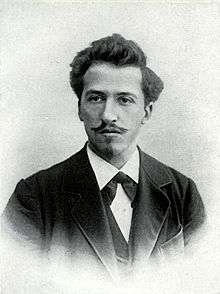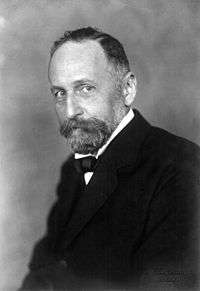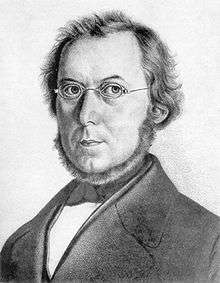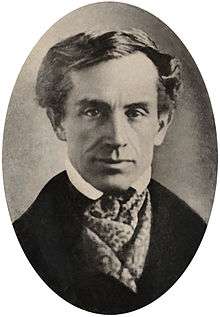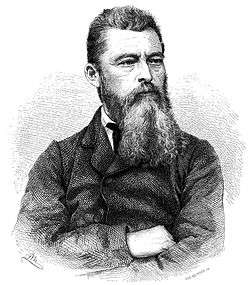1872
| Millennium: | 2nd millennium |
|---|---|
| Centuries: | 18th century · 19th century · 20th century |
| Decades: | 1840s · 1850s · 1860s · 1870s · 1880s · 1890s · 1900s |
| Years: | 1869 · 1870 · 1871 · 1872 · 1873 · 1874 · 1875 |
| 1872 in topic: |
| Humanities |
| Archaeology – Architecture – Art – Literature – Music |
| By country |
| Australia – Brazil - Canada – Denmark - France – Germany – Mexico – Norway - Philippines - Portugal– Russia - South Africa – Spain - Sweden - United Kingdom – United States |
| Other topics |
| Rail Transport – Science – Sports |
| Lists of leaders |
| Colonial Governors – State leaders |
| Birth and death categories |
| Births – Deaths |
| Establishments and disestablishments categories |
| Establishments – Disestablishments |
| Works category |
| Works |
| Gregorian calendar | 1872 MDCCCLXXII |
| Ab urbe condita | 2625 |
| Armenian calendar | 1321 ԹՎ ՌՅԻԱ |
| Assyrian calendar | 6622 |
| Bahá'í calendar | 28–29 |
| Bengali calendar | 1279 |
| Berber calendar | 2822 |
| British Regnal year | 35 Vict. 1 – 36 Vict. 1 |
| Buddhist calendar | 2416 |
| Burmese calendar | 1234 |
| Byzantine calendar | 7380–7381 |
| Chinese calendar | 辛未年 (Metal Goat) 4568 or 4508 — to — 壬申年 (Water Monkey) 4569 or 4509 |
| Coptic calendar | 1588–1589 |
| Discordian calendar | 3038 |
| Ethiopian calendar | 1864–1865 |
| Hebrew calendar | 5632–5633 |
| Hindu calendars | |
| - Vikram Samvat | 1928–1929 |
| - Shaka Samvat | 1793–1794 |
| - Kali Yuga | 4972–4973 |
| Holocene calendar | 11872 |
| Igbo calendar | 872–873 |
| Iranian calendar | 1250–1251 |
| Islamic calendar | 1288–1289 |
| Japanese calendar | Meiji 5 (明治5年) |
| Javanese calendar | 1800–1801 |
| Julian calendar | Gregorian minus 12 days |
| Korean calendar | 4205 |
| Minguo calendar | 40 before ROC 民前40年 |
| Nanakshahi calendar | 404 |
| Thai solar calendar | 2414–2415 |
| Wikimedia Commons has media related to 1872. |
1872 (MDCCCLXXII) was a leap year starting on Monday (dominical letter GF) of the Gregorian calendar and a leap year starting on Saturday (dominical letter BA) of the Julian calendar, the 1872nd year of the Common Era (CE) and Anno Domini (AD) designations, the 872nd year of the 2nd millennium, the 72nd year of the 19th century, and the 3rd year of the 1870s decade. As of the start of 1872, the Gregorian calendar was 12 days ahead of the Julian calendar, which remained in localized use until 1918.
Events
January–March
- January 12 – Yohannes IV is crowned Emperor of Ethiopia in Axum, the first ruler crowned in that city in over 500 years.
- February 2 – The government of the United Kingdom buys a number of forts on the Gold Coast from the Netherlands.[1]
- February 4 – A great solar flare and associated geomagnetic storm makes northern lights visible as far south as Cuba.[2]
- February 13 – Rex, the most famous parade on Mardi Gras, parades for the first time in New Orleans for Grand Duke Alexei Mikhailovich of Russia.
- February 17 – Execution of the Filipino priests José Burgos, Mariano Gómez and Jacinto Zamora, collectively known as Gomburza, in Bagumbayan Fields, Manila, Philippines by the authorities of New Spain on charges of subversion arising from the 1872 Cavite mutiny.
- February 20 – The Metropolitan Museum of Art opens in New York City.
- March 1 – In the United States, Yellowstone National Park (once dubbed "Colter's Hell" after John Colter, of the Lewis and Clark Expedition) is established as the world's first national park.
- March 5
- George Westinghouse receives a United States patent for the "failsafe" automatic railway air brake.
- The Tichborne case is decided in London against the claimant Arthur Orton (who, as a result, is convicted of perjury in 1874).
- March 11 – Work begins erecting the Seven Sisters Colliery in South Wales, located on one of the richest coal sources in Britain.
- March 16 – 1872 FA Cup Final: In the first ever final of the FA Cup, the world's oldest football competition, Wanderers F.C. defeat Royal Engineers A.F.C. 1–0 at The Oval in Kennington, London.[3]
- March 26 – The 7.4–7.9 Mw Lone Pine earthquake shakes eastern California with a maximum Mercalli intensity of X (Extreme). Twenty-seven people were killed and fifty-six were injured.
April–June
- April 14 – The Third Carlist War begins in northern Spain. Don Carlos, Duke of Madrid, the Carlist pretender (Carlos VII) appoints General Rada commander-in-chief in Spain and calls for a general rising.
- May – The magazine Popular Science is first published in the United States.
- May 4 – Third Carlist War in Spain: The Carlist Army is defeated at the Battle of Oroquieta in Navarre. 1,000 government troops (Moriones) easily defeat the much larger number of Carlists at Oroquieta. 50 Carlists are killed and Moriones take 700 prisoners but Don Carlos escapes.
- May 10 – Victoria Woodhull becomes the first woman nominated for President of the United States, although she is a year too young to qualify and does not appear on the ballot.
- May 15 – The New Zealand Wars end after 17 years with the conclusion of Te Kooti's War; Maori spiritual leader Te Kooti Arikirangi Te Turuk crosses the Waikato River and enters the territory of the Māori King, Tāwhiao, where he is granted asylum.
- May 22
- Reconstruction: U.S. President Ulysses S. Grant signs the Amnesty Act of 1872 into law, restoring full civil rights to all but about 500 Confederate sympathizers.
- Georges Bizet's comic opera Djamileh is premièred at the Opéra-Comique in Paris, France.
- June – Rangers F.C. play their first ever game on the public pitches of Glasgow Green in Scotland.
- June 14 – Trade unions are legalised in Canada.[4]
July–September
- July 4 – The Society of Jesus is pronounced illegal in the German Empire.
- August 22 – The Australian Overland Telegraph Line is completed, providing a telegraphic link between Australia and the rest of the world for the first time.
- September – Thomas Hardy anonymously publishes his novel Under the Greenwood Tree.
- September 1 – A group of Icaiche Maya under Marcos Canul attack Orange Walk Town in British Honduras; the British send troops against them.
- September 18 – Upon the death of King Charles XV of Sweden and Norway, he is succeeded as King of both crowns by his brother Oscar II.
- September 26 – The first Shriners Temple (called Mecca) is established in New York City.
October–December
- October 1
- The Virginia Agricultural and Mechanical College begins its first academic session (the university is later renamed Virginia Tech).
- First case reports in Toronto, Ontario, Canada, of the Great Epizootic of 1872 (equine influenza, or the "horse flu") which will substantially disrupt life in North America by mid-December.
- October 16 - University College Wales (later to become Aberystwyth University) begins its first academic session.[5]
- November 5
- U.S. presidential election, 1872: Ulysses S. Grant defeats Horace Greeley.
- Women's suffrage: In defiance of the law, American suffragist Susan B. Anthony votes for the first time (on November 18 she is served an arrest warrant and in the subsequent trial is fined $100 which she never pays).
- November 7 – The Mary Celeste sets sail from New York; bound for Genoa, Italy.
- November 9 – Great Boston Fire of 1872: In Boston, Massachusetts, a large fire begins to burn on Lincoln Street (the 2-day disaster destroys about 65 acres (0.26 km2) of the city, 776 buildings, much of the financial district and causes US$60 million in damage).
- November 11 – U.S. government geologist Clarence King reveals the diamond hoax in Wyoming.
- November 13 (07:35) (probable date) – Claude Monet begins painting Impression, Sunrise (Impression, soleil levant, the painting that will give a name to Impressionism) as viewed from his hotel room at Le Havre in France.[6]
- November 16 – The London Metropolitan Police go on strike.
- November 27 – A meteor shower display of Andromedids is seen over France.
- November 29
- American Indian Wars: The Modoc War begins with the Battle of Lost River.
- Horace Greeley, President Ulysses S. Grant's opponent in this year's U.S. presidential election, dies. His electoral votes are divided among several candidates.
- November 30 – First international Association football match to be recognised (retrospectively) by FIFA as "official" takes place at Hamilton Crescent, Scotland; the result is Scotland 0-0 England.[7] Earlier international football matches had already taken place in 1870, in 1871 and again in 1872 at the Oval, London.
- December 3 – George Smith presents the first translation of the Epic of Gilgamesh to a meeting of the Society of Biblical Archaeology in London.
- December 4 – The now-crewless American ship Mary Celeste is found (still seaworthy) by the British brig Dei Gratia in the Atlantic.
- December 6 – Springwell Pit disaster at Dawley in England: eight coal miners fall to their death when a winding chain snaps.
- December 21 – Challenger expedition: HMS Challenger (1858) sails from Portsmouth in England on the 4-year scientific expedition that lays the foundation for the science of oceanography.
Date unknown
- In the aftermath of the Paraguayan War, the new government of Paraguay makes peace with Brazil, grants reparations and territorial concessions.
- The Kolozsvári Egyetem, predecessor of the University of Szeged, is founded.
- A conscription law, modeled on the French version, is issued in Japan.
- Universal public schools are called for in Japan.
- The first Marist Brothers arrive in Australia.
- Alfred B. Miller and Elmer Crockett found the South Bend Tribune in the United States.
- Founding of ST Dupont, a French manufacturer of luxury goods.
Births
January–June
- January 6 – Alexander Scriabin, Russian composer (d. 1915)
- January 13 – Vlasios Tsirogiannis, Greek general (d. 1928)
- January 14 – Kerstin Hesselgren, Swedish politician (d. 1962)
- January 20 – Julia Morgan, American architect (d. 1957)
- January 23 – Gotse Delchev, Bulgarian revolutionary (d. 1903)
- January 31 – Zane Grey, American writer (d. 1939)
- February 1 – Jerome F. Donovan, American politician (d. 1949)
- February 11 – Hannah Mitchell, English socialist and suffragette (d. 1956)
- March 3 – Willie Keeler, "hit 'em where they ain't" baseball legend (d. 1923)
- March 7 – Piet Mondrian, Dutch painter (d. 1944)
- March 8 – Priscilla Susan Bury, British botanist (b. 1799)
- March 11 – Kathleen Clarice Groom, British writer (d. 1954)
- March 15 – Harry Holman, American character actor (d. 1947)
- March 24 – J. C. Wienecke, Dutch medallist (d. 1945)
- April 9 – Léon Blum, French politician, Prime Minister of France 1936-1937, 1938, and 1946-1947 (d. 1950)
- April 14 – Abdullah Yusuf Ali, Indian-born Islamic scholar and translator (d. 1953)
- April 29 – Harry Payne Whitney, businessman, horse breeder (d. 1930)
- May 6 – William Bowie, American geodetic engineer (d. 1940)
- May 12 – Anton Korošec, Slovenian political leader (d. 1940)
- May 16 – John O'Connell, American baseball player (d. 1908)
- May 18 – Bertrand Russell, English philosopher and mathematician, recipient of the Nobel Prize in Literature (d. 1970)
- May 21 – Henry E. Warren, inventor of the first commercially viable electric clock, the Telechron (d. 1957)
- May 31
- Charles Greeley Abbot, American astrophysicist (d. 1973)
- W. Heath Robinson, British cartoonist and illustrator (d. 1944)
- June 6 – Alexandra Feodorovna (Alix of Hesse) (d. 1918)
- June 8 – Jan Frans De Boever, Belgian painter (d. 1949)
- June 13 – Thomas N. Heffron, American film director (d. 1951)
- June 14 – János Szlepecz, Slovene writer and priest (d. 1936)
- June 20 – George Carpenter, 5th General of The Salvation Army (d. 1948)
- June 27 – Paul Laurence Dunbar, American poet and publisher (d. 1906)
July–December
- July 1 – Louis Blériot, French aviation pioneer (d. 1936)
- July 2 – Horace Short, British aircraft designer (d. 1917)
- July 4 – Calvin Coolidge, 30th President of the United States (d. 1933)
- July 16 – Roald Amundsen, Norwegian polar explorer (d. 1928)
- July 25 – Herbert Stanley, Governor of Northern Rhodesia, Ceylon and Southern Rhodesia (d. 1955)
- August 2 – George E. Stewart, American Medal of Honor recipient (d. 1946)
- August 3 – King Haakon VII of Norway (d. 1957)
- August 9 – Archduke Joseph August of Austria, Austrian field marshal (d. 1962)
- August 10 – Bill Johnson, American jazz musician (d. 1972)
- August 13 – Richard Willstätter, German chemist, Nobel Prize laureate (d. 1942)
- August 15 – Sri Aurobindo, Indian nationalist, writer and mystic (d. 1950)
- August 21 – Aubrey Beardsley, British artist (d. 1898)
- September 20 – Maurice Gamelin, French general (d. 1958)
- September 28
- David Unaipon, Australian author and inventor (d. 1967)
- Charles F. Watkins, American physician (d. 1936)
- October 4 – Roger Keyes, 1st Baron Keyes, British admiral (d. 1945)
- October 11 – Harlan F. Stone, Chief Justice of the United States (d. 1946)
- October 12 – Ralph Vaughan Williams, English composer (d. 1958)
- October 15 – Edith Wilson, First Lady of the United States (d. 1961)
- November 1 – Louis Dewis, Belgian Post-Impressionist painter (d. 1946)
- November 11 – Maude Adams, American stage actress (d. 1953)
- November 30 – John McCrae, Canadian soldier, surgeon and poet (d. 1918)
- December 3 – William Haselden, Spanish cartoonist (d. 1953)
- December 11 – René Bull, British illustrator and photographer (d. 1942)
- December 12 – Henry Jones, Sr., fictional character in Indiana Jones franchise (d.1951)
- December 16 – Anton Ivanovich Denikin, Imperial Russian Lieutenant General (d. 1947)
- December 21 – Don Lorenzo Perosi, Italian composer (d. 1956)
- December 26 – Norman Angell, English politician, recipient of the Nobel Peace Prize (d. 1967)
- Fok Hing Tong, also known as Huo Qingtang, Hong Kong business woman and social reformer (d. 1957)
Deaths
January–June
- January 7 – Big Jim Fisk, American financier (b. 1834)
- January 9 – Henry Halleck, American general (b. 1815)
- January 21 – Franz Grillparzer, Austrian writer (b. 1791)
- March or April – Mercator Cooper, American sea captain (b. 1803)
- March 12 – Zeng Guofan (traditional Chinese: 曾國藩 ), Chinese official, military general and Confucian scholar (b. 1811)
- March 20 – William Wentworth, Australian explorer (b. 1790)
- April 1
- Frederick Maurice, English theologian (b. 1805)
- Hugo von Mohl, German botanist (b. 1805)
- April 2 – Samuel Morse, American inventor (b. 1791)
- June 4
- Stanisław Moniuszko, Polish composer (b. 1819)
- Johan Rudolph Thorbecke, Dutch politician (b. 1798)
- June 20 – Élie Frédéric Forey, Marshal of France (b. 1804)
July–December
- July 18 – Benito Juárez, President of Mexico (b. 1806)
- September 10 – Avram Iancu, Romanian Transylvanian insurgent (b. 1824)
- September 13 – Ludwig Feuerbach, German philosopher (b. 1804)
- September 18 – Charles XV, King of Sweden and Norway (b. 1826)
- September 18 – Ana María Martínez de Nisser, Colombian heroine and writer (b. 1812)
- October 4 – Vladimir Dal, Russian lexicographer (b. 1801)
- October 10 – William H. Seward, 24th United States Secretary of State (b. 1801)
- October 23 – Théophile Gautier, French writer (b. 1811)
- November 6 – George Meade, American Civil War general (b. 1815)
- November 28 – Mary Somerville, British mathematician (b. 1780)
- November 29 – Horace Greeley, American newspaper editor and presidential candidate (b. 1811)
- December 15 – Lady Beaconsfield, wife of Benjamin Disraeli (b. 1792)
- December 31 – Aleksis Kivi, Finnish novelist (b. 1834)
References
- ↑ Palmer, Alan; Veronica (1992). The Chronology of British History. London: Century Ltd. pp. 294–295. ISBN 0-7126-5616-2.
- ↑ http://www.solarstorms.org/NewsPapers/1872t.pdf
- ↑ Penguin Pocket On This Day. Penguin Reference Library. 2006. ISBN 0-14-102715-0.
- ↑ "Origins of Labour Day". The Canadian Encyclopedia.
- ↑ "Aberystwyth University - Early Days". www.aber.ac.uk. Retrieved 2016-07-28.
- ↑ Olson, Donald W. (2014). "Dating Impression, Sunrise". Monet's Impression, Sunrise: the biography of a painting. Paris: Éditions Hazan; Musée Marmottan Monet. pp. 80–105. ISBN 978-0-300-21088-0.
- ↑ Londonhearts.com summary
Sources
- American Annual Cyclopedia and Register of Important Events of the Year 1872. 12. New York: D. Appleton and Co. 1873 – via Hathi Trust. + via Google Books
This article is issued from Wikipedia - version of the 11/11/2016. The text is available under the Creative Commons Attribution/Share Alike but additional terms may apply for the media files.
